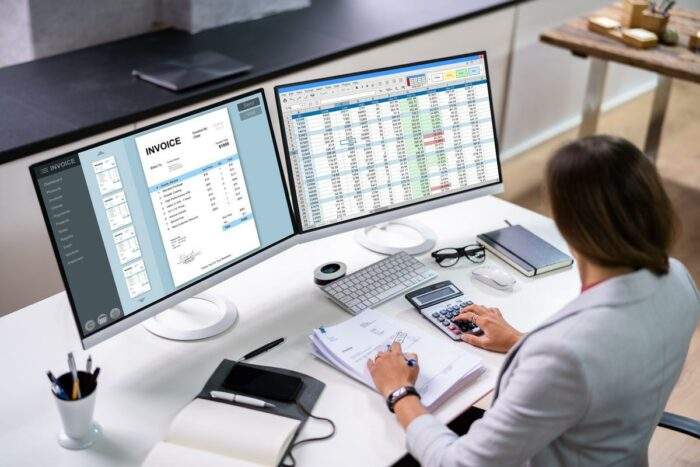The Role Of Technology In Streamlining Medical Billing Processes

When discussing the healthcare industry’s development, the role of technology cannot be skipped. Technology has taken healthcare to another level. Going back a few decades, you will be surprised by the techniques, procedures, and equipment used.
It was a whole different medical world. Today is advanced, fast, and effective. And we cannot even imagine what tomorrow will be like hopefully, technology will have more pleasant surprises for us in healthcare.
The traditional diagnosis and treatment methods were complex, time-consuming, resource-consuming, and required a lot of effort. Rapid technological progressions introduced high-tech medical equipment, innovative procedures, and more cost-effective medications. These developments have streamlined various medical functions. Moreover, a significant improvement can be observed in the healthcare service quality.
As technology evolves in different sectors and industries, it is vital that the healthcare system catches up with the pace and welcomes the evolution of technology. Technology is helping the healthcare system to become more efficient, stay competitive, and effectively address the patient’s needs.
From a patient’s perspective, ideal healthcare is the nearest and quickest availability of healthcare services and facilities, effective insurance coverage, and timely treatment.
The healthcare system has encountered several challenges in the past few years, including inefficient processes, escalating healthcare costs, and lacking patient-specific treatment. Furthermore, there was an increase in the number of patients with acute and chronic illnesses.
Also, the Covid-19 pandemic revealed the capacity and capability of healthcare systems to handle excess patients. Several healthcare centers were down on staff and exhausted while managing a large number of patients. But now, the changing healthcare trends are impacting the providers and the patients. The current technological solutions answer the patient’s expectations and the healthcare system’s challenges.
Technological Wonders In Healthcare
Technology has covered the following areas of healthcare functions:
- Remote monitoring
- Data collection
- Medical billing and coding
- Research
- Compliance
- Timely diagnoses and treatment
Technology has blessed the healthcare industry with one of the most significant advantages; a streamlined medical billing process.
How Technology Contributed To A Streamlined Medical Billing Process?
To begin with, technology has helped to eliminate paperwork. The exclusion of paperwork decreased the time spent manually entering data and minimized the chances of errors, affecting the billing process significantly.
Secondly, finances. Every medical practice requires finances to move forward and continue providing services effectively. An efficient revenue cycle management (RCM) is a necessity for medical practices to ensure their successful revenue cycle. An RCM process is essential for charging patients correctly and making sure that healthcare providers and their teams are paid accurately for offering their services.
The RCM process begins with the registration of the patient and continues until the provider is paid for their medical services. In this process, the two essential components are medical billing and medical coding. Any compromise in the accuracy of these components can lead to denied claims.
Medical billing and coding are significantly connected and dependent; thus, any error in the coding can harm the billing step too.
Medical billing and coding complexities take a lot of work to follow up. Managing a busy practice with staying updated on various rules, regulations, and guidelines of these processes can be problematic. Therefore, healthcare practitioners prefer medical billing and coding outsourcing companies.
Let’s briefly look into the details of medical coding and medical billing and how software introduced by technology has helped make the billing process easier.
Medical Coding
This process translates the patient’s diagnosis and performed procedures into codes. The coding systems commonly used for medical coding are:
- International Classification of Disease (ICD) codes
- Current Procedural Codes (CPT) codes
- Healthcare Common Procedure Coding System (HCPCS) codes
Medical coding is further used for accurate billing when the billers file claims.
Medical Billing
After the completion of medical coding, it is time to create claims and invoices using the translated codes and send them to the insurance companies. The claim is then either approved or denied. This outcome greatly depends on the accuracy of the coding step. The other reasons can be human errors from the biller’s end.
The insurance plan covers the payment to the provider by the insurance companies, and the remaining is paid by the patient (out-of-pocket). The medical billing process starts when a patient gets an appointment.
Medical Billing With Software
The past decades were definitely different for the medical billing process. The paperwork was abundant for both medical coding and medical billing. With any obstructions in the claim approvals, the paperwork further increased. However, in this era of the healthcare industry, softwares have eliminated the need for paperwork, which is a massive plus for the medical billing process.
Recruiting and training medical billers can be an arduous task for healthcare providers. And since the medical billing process requires careful handling, healthcare technology has offered medical billing software that can effectively streamline the billing process and make it more proficient. An improved medical billing process positively impacts the revenue cycle – so it’s another indirect advantage.
Medical billing software has added more compliance to the billing process. Any compromise on compliance has always been frowned upon, especially in the case of healthcare. Patients’ sensitive information needs safe handling, and software such as eClinicalWorks (ECW) is fully HIPAA-compliant.
Several in-house and outsourced medical billing companies are using ECW in medical billing. Moreover, various Electronic Health Records (EHR) software have also been created that ease the maintenance, recording, and storing of patient data – such compliant software has also given an advantage to medical practitioners.
Conclusion
Technology has taken healthcare to another level. Unlike traditional healthcare practices and procedures, recent technology-based developments have streamlined various medical functions. This has shown a significant improvement in the healthcare service quality.
Different tech innovations have successfully addressed the previous challenges faced by the healthcare industry. Remarkably, the medical billing and coding processes have been made more efficient, quick, accurate, and secure with the help of medical billing software. Implementing billing and other healthcare software has reshaped and improved practices and revenue cycles.







